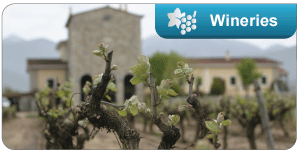Sulphite
There is the impression that one cannot call a wine “organic”, “biodynamic”, or “natural” if during its production a chemical substance known as “sulphite” is used. This issue needs clarification.
Without human interference, sulphite already plays a vital role in nature: it is necessary for the plants’ metabolism (grapes contain sulphite for this purpose in small quantities), and for the fermentation cycle of the yeast (yeast also produces small quantities of sulphite during fermentation). However, there is a difference between sulphur dioxide (SO2) and sulphur (S). Sulphur dioxide is used in wine production and is created by combining sulphur and oxygen; it is added to wine mainly because of its antiseptic and anti-oxidant nature. The majority of sulphur dioxide is bound to various compounds in the wine—the remaining “free” or “active” parts of the sulphur play a protective role (known as the “active” sulphite). This active SO2 is added mainly to aide in the safety of the maturation stages and is only ever used within the limits strictly determined by European legislation.



